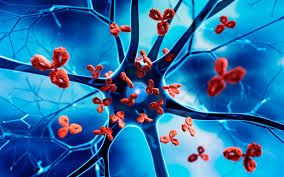Step-by-Step Guide to Your IVF Journey Thailand
A Comprehensive Overview of IVF in Thailand: A Gateway to Parenthood
The journey towards parenthood can often be fraught with challenges, especially for couples and individuals grappling with infertility issues. In recent years, Thailand has emerged as a leading destination for in vitro fertilization (IVF) treatment, attracting patients from around the globe. This guide will delve into the intricacies of the IVF process in Thailand, emphasizing its numerous benefits, state-of-the-art facilities, and the compassionate care provided by experienced medical professionals.
The IVF Process: Understanding Each Critical Step
IVF is a multifaceted medical procedure designed to assist individuals and couples in overcoming fertility challenges. The process typically unfolds in several phases: ovarian stimulation, egg retrieval, fertilization, embryo culture, and embryo transfer. Each step is vital, requiring careful monitoring and expertise to enhance the likelihood of a successful outcome.
Patients considering IVF often face various infertility challenges, including advanced maternal age, hormonal imbalances, endometriosis, or male factor infertility. Understanding these conditions is essential, as it empowers patients to make informed decisions regarding their treatment options. IVF offers hope to those who may have exhausted other avenues for achieving parenthood, transforming their dreams into reality.
Initial Consultation: Building the Foundation for Success
The IVF journey begins with an initial consultation with a fertility specialist. This meeting is critical, as it establishes the groundwork for the treatment plan. During the consultation, patients are encouraged to share their medical history, previous attempts to conceive, and specific goals for treatment. This open dialogue enables the healthcare provider to gain a comprehensive understanding of the patient’s unique circumstances.
A thorough evaluation typically includes diagnostic tests such as blood work, ultrasounds, and semen analysis for male partners. The fertility specialist will then craft a personalized treatment plan, outlining the IVF process and addressing any potential concerns. This collaborative approach fosters trust between patients and their healthcare team, ensuring a supportive environment throughout the treatment journey.
Detailed Breakdown of the IVF Process
1. Ovarian Stimulation: The first step in the IVF process involves ovarian stimulation, where patients receive hormonal injections designed to stimulate the ovaries to produce multiple eggs. This phase generally lasts about 10 to 14 days and requires careful monitoring through blood tests and ultrasounds. The objective is to collect a sufficient number of high-quality eggs, increasing the chances of successful fertilization.
2. Egg Retrieval: Once the follicles have matured, a minor surgical procedure is performed to retrieve the eggs. This procedure is usually conducted under sedation to ensure patient comfort. The success of this step is crucial, as the quality and quantity of retrieved eggs directly influence the overall success rate of IVF.
3. Fertilization: Following egg retrieval, the eggs are fertilized in the laboratory. This process can be accomplished through traditional insemination, where sperm is added to the eggs, or through intracytoplasmic sperm injection (ICSI), where a single sperm is directly injected into an egg. The choice of method often depends on the specific fertility issues faced by the couple.
4. Embryo Culture: Once fertilization occurs, the embryos are cultured for several days in a controlled laboratory environment. This phase allows the embryos to develop and grow, with some clinics offering pre-implantation genetic testing (PGT) to screen embryos for genetic abnormalities. This testing enhances the chances of successful implantation and a healthy pregnancy.
5. Embryo Transfer: The final step in the IVF process involves transferring one or more embryos into the uterus. This straightforward procedure typically does not require anesthesia and is performed under sterile conditions. After the transfer, patients are usually advised to rest briefly before resuming normal activities, as complete bed rest is not generally necessary.
6. Monitoring and Follow-Up: Approximately 10 to 14 days after the embryo transfer, patients undergo a blood test to determine if pregnancy has been achieved. This waiting period can be emotionally taxing, but many fertility clinics in Thailand provide support services to help patients navigate this uncertain time. Maintaining open lines of communication with the healthcare team is encouraged, as they can offer reassurance and guidance.
Cost Efficiency: The Economic Benefits of IVF in Thailand
One of the most compelling reasons to choose Thailand for IVF treatment is the affordability of the procedures when compared to many Western countries. The cost of a standard IVF cycle in Thailand typically ranges from $4,000 to $7,000, which often includes medication, consultations, and monitoring. This competitive pricing structure makes Thailand an attractive option for international patients seeking high-quality care at a fraction of the cost.
Moreover, patients should consider additional expenses, such as travel, accommodation, and any necessary follow-up treatments. The overall lower cost of living in Thailand can further enhance the affordability of the IVF journey, allowing patients to receive exceptional care without the financial burden often associated with fertility treatments.
Cultural and Lifestyle Opportunities: Exploring Thailand During Treatment
Thailand is renowned for its rich cultural heritage, breathtaking landscapes, and warm hospitality. Patients traveling for IVF treatment can immerse themselves in the vibrant local culture while undergoing their procedures. From exploring ancient temples to indulging in the diverse culinary scene, patients have the opportunity to experience the beauty and allure of Thailand, creating lasting memories during their medical journey.
The favorable climate, particularly in major medical tourism cities like Bangkok and Phuket, contributes to a pleasant stay. The country’s distinct seasons offer various experiences, allowing patients to plan their visit according to their preferences. Whether enjoying the cool season or the lively festival atmosphere, patients can find joy and relaxation amidst their treatment process.
Emotional and Psychological Support: Navigating the IVF Journey
The emotional aspects of undergoing IVF can be challenging for many patients. To support individuals throughout this journey, numerous fertility clinics in Thailand offer counseling services and psychological support. Mental health professionals with expertise in fertility issues can provide valuable coping strategies for managing the emotional highs and lows that often accompany fertility treatments.
Additionally, support groups can foster connections among individuals and couples facing similar challenges, creating a sense of community and understanding. By prioritizing emotional well-being, clinics can enhance the overall patient experience, ensuring that individuals feel supported and empowered throughout their IVF journey.
Your Path to Parenthood in Thailand
In conclusion, Thailand stands out as an exceptional destination for IVF treatment, offering a combination of advanced medical care, affordability, and rich cultural experiences. Prospective parents can embark on their IVF journey with confidence, knowing they have access to top-notch facilities and compassionate healthcare professionals.
As you explore options for fertility treatment, the unique blend of quality healthcare, economic advantages, and cultural enrichment makes Thailand an ideal choice. Embracing this journey can lead to not only the realization of your dreams of parenthood but also an opportunity for personal growth and exploration in this remarkable country.






